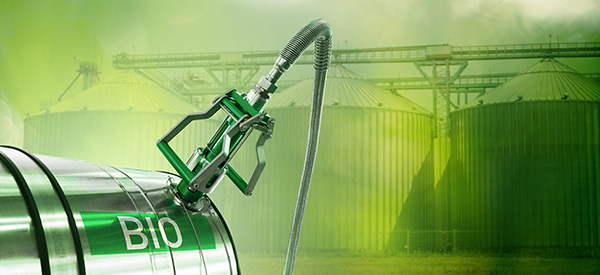
In recent years, biofuels have gained significant attention as a possible solution to reducing our reliance on fossil fuels. With climate change concerns growing and the world seeking cleaner alternatives for energy, biofuels are often seen as a more sustainable option. However, like any energy source, biofuels have their own advantages and disadvantages. So, are biofuels the future of energy, or do they have hidden downsides?
What Are Biofuels
Biofuels are derived from organic materials, also known as biomass, including plants, agricultural waste, and animal by-products. Unlike traditional fossil fuels that take millions of years to form, biofuels are renewable and can be replenished quickly. The most common types of biofuels include ethanol (produced from crops like corn and sugarcane) and biodiesel (made from vegetable oils and animal fats).
Pros of Biofuels
Renewable Energy Source One of the most significant advantages of biofuels is that they are renewable. While fossil fuels are finite and will eventually run out, biofuels can be produced continuously as long as there are biomass sources like plants. This makes biofuels a sustainable alternative to traditional fuels.
Reduced Greenhouse Gas Emissions
Burning fossil fuels releases carbon dioxide and other harmful greenhouse gasses into the atmosphere, contributing to global warming. Biofuels, on the other hand, are considered carbon-neutral because the plants used to produce them absorb carbon dioxide during photosynthesis. Although biofuels still emit some CO2 when burned, the overall net emissions are lower compared to fossil fuels.
Support for Agriculture
The production of biofuels creates opportunities for farmers, particularly in rural areas. Growing crops like corn, sugarcane, and soybeans for biofuel production provides a new revenue stream for the agricultural sector. This can also help stabilize farm incomes and promote rural economic development.
Energy Security
Biofuels can help reduce a country's dependence on foreign oil imports. By producing fuel locally, nations can increase their energy independence and reduce the risks associated with volatile global oil markets. This can also improve national security by lowering the reliance on geo politically unstable regions for energy.
Cons of Biofuels
Food vs. Fuel Debate
One of the main criticisms of biofuels is that they can compete with food production. Crops that would otherwise be used to feed people are instead used to make fuel, which can drive up food prices and contribute to food shortages in some regions. This is particularly concerning in developing countries where food security is already a major issue.
Environmental Concerns
While biofuels are considered more environmentally friendly than fossil fuels, they are not without their drawbacks. Large-scale biofuel production requires significant amounts of water, land, and fertilizers, which can have negative environmental impacts. Deforestation, habitat destruction, and loss of biodiversity are all potential consequences of expanding biofuel crops.
Energy Efficiency
The production of biofuels is not always as efficient as it seems. The process of growing, harvesting, and converting crops into fuel can consume a large amount of energy. In some cases, the energy required to produce biofuels may outweigh the energy they provide. This is known as the energy return on investment (EROI), and for some biofuels, it’s relatively low compared to fossil fuels.
Limited Availability
Despite the push for biofuel adoption, they are still not as widely available as conventional gasoline and diesel. Many vehicles also require modifications to run on biofuels, particularly biodiesel blends. This lack of infrastructure and vehicle compatibility can limit the widespread use of biofuels in the transportation sector.
Is Biofuel the Right Choice
While biofuels offer a cleaner, renewable alternative to fossil fuels, they are not without challenges. The balance between the environmental benefits and potential drawbacks, like food scarcity and land use issues, needs to be carefully managed. For biofuels to truly become a viable, large-scale solution to our energy needs, further research and innovation are necessary to improve efficiency and minimize their impact on the environment.
Looking for Eco-Friendly Car Maintenance? If you're interested in reducing your environmental impact, why not start with your vehicle? Visit Golden Gear Automotive today to ensure your car is running efficiently, helping you save both fuel and money.